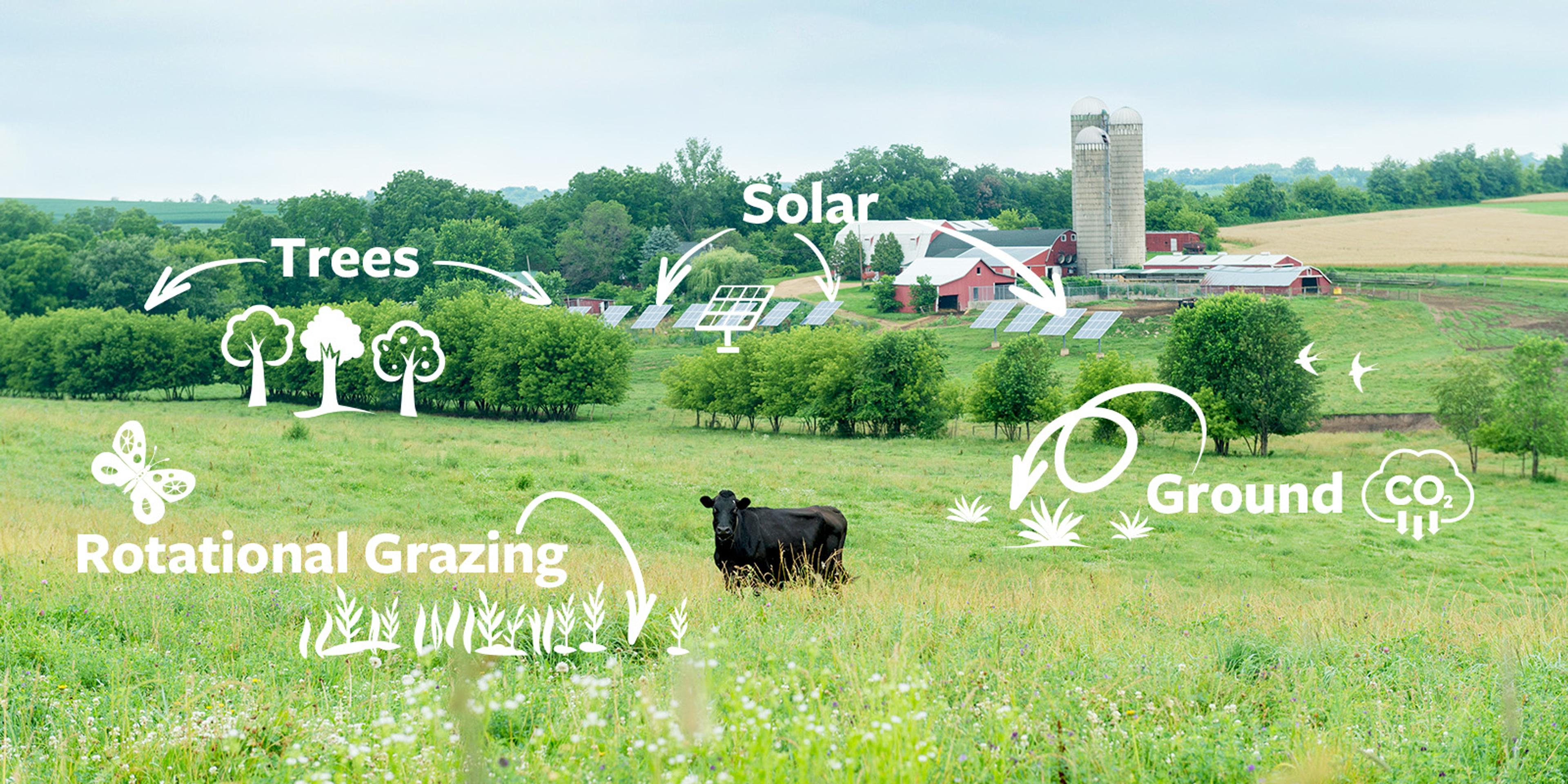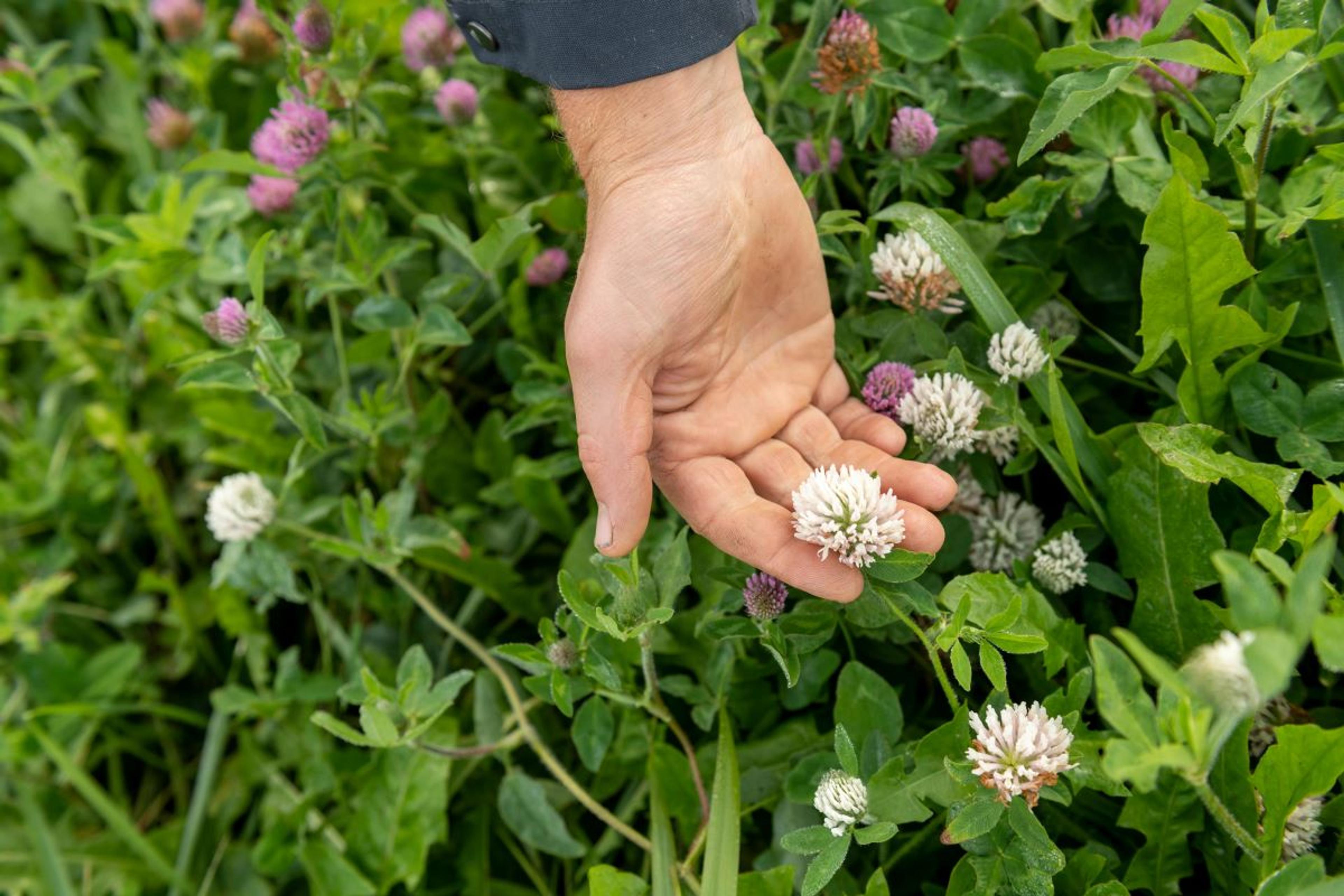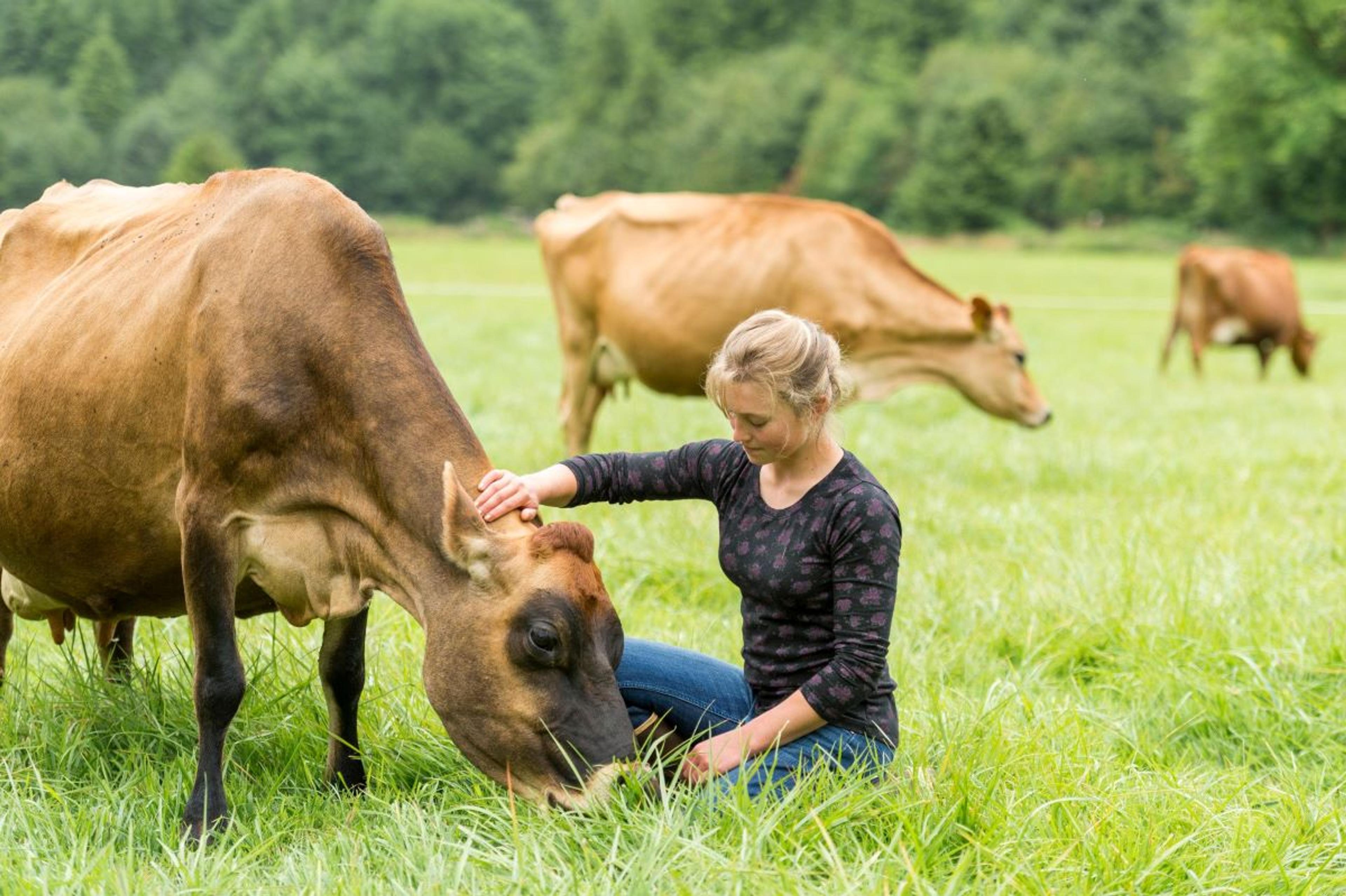
Earth
Reducing Farm Emissions Without Carbon Offsets
Organic Valley continuously explores ways to better our products, animal care standards, farmer and employee well-being, and impact on the Earth. Since our beginning in 1988, we’ve always set high goals and we continue to do so as we aim to be the first major dairy brand to reduce farm emissions without relying on carbon offsets.
We are committed to becoming carbon neutral by 2050, and a new carbon insetting program will be instrumental in reaching our goal.
Organic Valley’s insetting program incentivizes and assists Organic Valley farmers in implementing regenerative, climate-smart farming practices. This innovative program will enable Organic Valley to reach carbon neutrality without a reliance on carbon offsetting—purchasing external carbon credits—as many companies do.
What is Carbon Insetting and Carbon Offsetting?
- Carbon offsetting occurs when a company purchases carbon credits from a project developer or broker and “applies” the credits to its carbon footprint. The credits result from carbon reductions and/or removals that occur outside of the company’s supply chain.
- Carbon insetting is the practice of investing in carbon reductions and/or removals within a company’s own supply chain. Removals are natural strategies like tree plantings and soil health improvements that result in removing greenhouse gas emissions from the atmosphere through a process called carbon sequestration.

Clover at the Johnson family farm in Wisconsin.
The new program is designed to help Organic Valley reach carbon neutrality through on-farm sustainability programs that meet, or go beyond, Natural Resources Conservation Service standards such as tree plantings, improved manure management, renewable energy, energy efficiency, agroforestry, and enhanced grazing and cropland practices.
Climate-Smart Farms Reduce Impact
Organic Valley climate-smart farms are already incorporating practices like these that reduce their impact on the planet. Eco-friendly practices include silvopasture, waterway restoration, use of renewable energy, and even the way Organic Valley farmers pasture their cows. (And you won’t hear the cows complaining; through rotational grazing they get a diverse, tasty diet that is good for them and creates delicious food for your families and ours.)
We’ve kept 440 million pounds of chemicals off the land and our owned facilities are powered by 100% renewable electricity! But we know we can always do more. Organic Valley’s insetting projects will cover 34 states on farms that produce dairy, eggs, meat, grain, and produce.
“As America’s low-carbon dairy, we are excited to bring this new program to Organic Valley farmer-members, not only to accelerate additional carbon drawdown but also to better the communities our farmers, employees, and consumers call home,” said Nicole Rakobitsch, director of Organic Valley’s Sustainability Team. “Many of these practices have added co-benefits such as providing habitat for wildlife and pollinators, and providing clean air and water.”
Uniting to Reach Carbon Neutrality
Our farmers are down to earth, literally. It’s not unusual to see them running their hands through the soil, sitting on the ground with their cows as they await the next project, or kneeling in a pasture checking what forages are popping up.

Elena Johnston pets a content cow on her organic farm in Oregon. ©David Nevala for Organic Valley.
By participating in the CROPP Carbon Insetting Program, our farmer-members can ensure that their carbon credits stay with their farm and benefit the co-op, helping to reach our collective carbon neutral goal.
Started by seven farmers more than 30 years ago, Organic Valley has grown to more than 1,700 caretakers of land and animals. We recognize that food and farming systems have a key role to play in mitigating climate change. Organic Valley farmers want to ensure that what we do and how we do it is impacting the world in a positive way. We will continue to do what’s best for the planet, animals, and people by promoting biodiversity, reducing fossil fuels, and making sure our soil is healthy.
Related Articles
- Tags:
- water,
- climate,
- environment,
- regenerative agriculture,
- renewable energy,
- sustainable business















